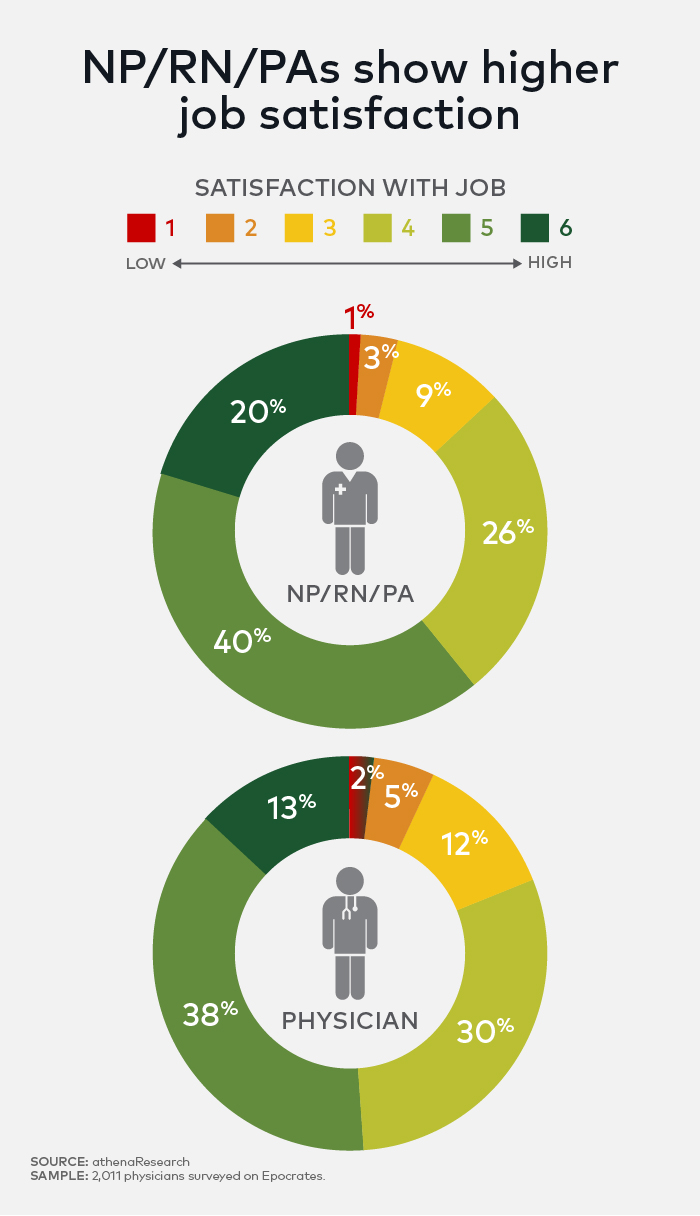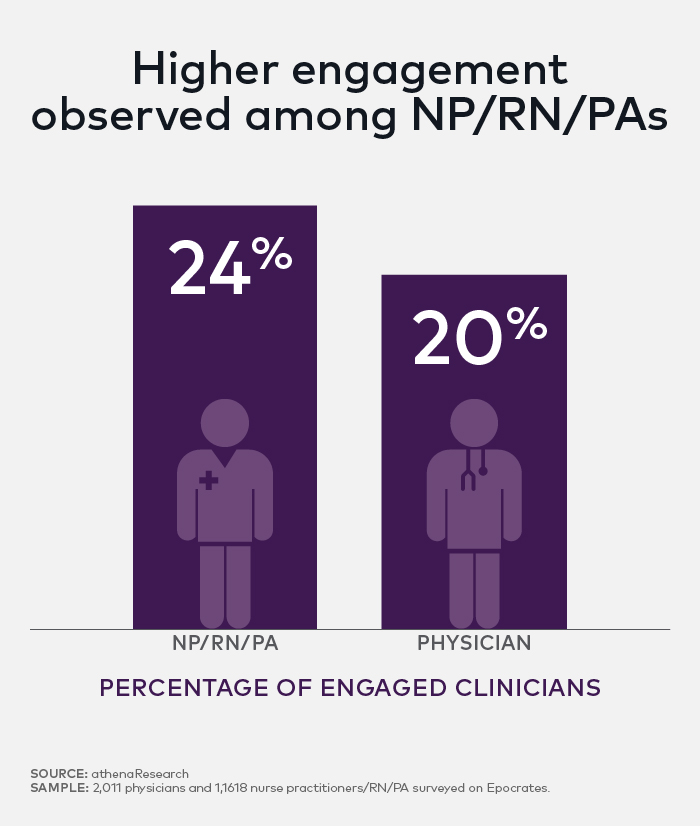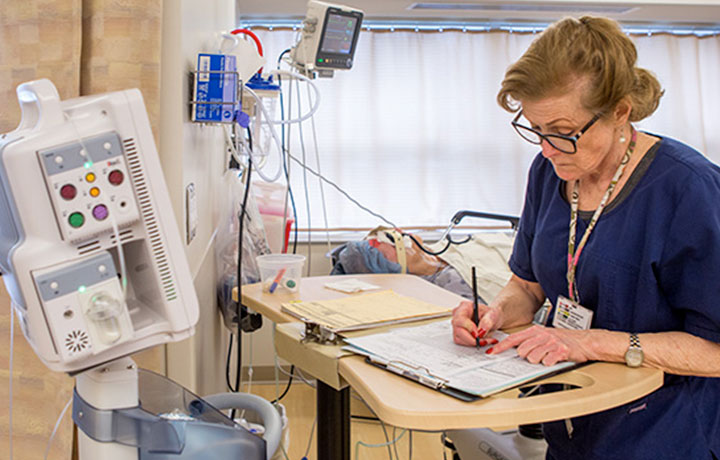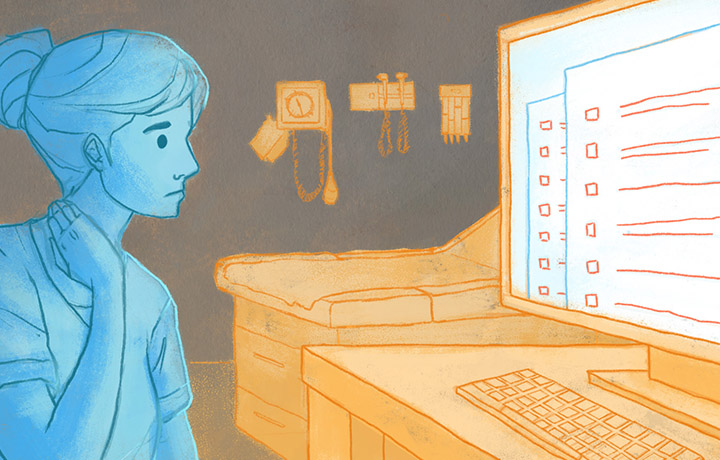Article
On the frontlines of care, nurses lead in engagement
By Eric Levenson | May 6, 2019

The survey, part of athenahealth's 2016 Physician Leadership and Engagement Index, offers a unique look at two professions that are likely to take on increasing importance to healthcare systems in coming years.
Because of population growth and aging baby boomers, The National Center for Health Workforce Analysis has warned that there won't be enough primary care physicians to cover patient demand in the coming years. One proposal to close the gap is to rely more on RNs and APPs for basic primary care.
So keeping those employees engaged and satisfied is key to creating effective healthcare teams, says Josanne Pagel, president of the American Academy of Physician Assistants.
In the national survey, conducted through the mobile health app Epocrates, more than 4,000 users were asked to rate their job satisfaction on a scale from 1 to 6, with a 6 being “extremely satisfied."

Fully 60 percent of APPs and RNs say they are satisfied or extremely satisfied with their jobs, while just 51 percent of physicians say the same. And 20 percent of RNs and APPs said they are “extremely satisfied," compared to 13 percent of physicians.
By contrast, 19 percent of physicians say they are slightly dissatisfied, dissatisfied, or extremely dissatisfied with their jobs — with engagement levels particularly low among primary care physicians. Only 13 percent of APPs and RNs report those markers of dissatisfaction.
The survey also asked respondents to rate, on a 1 to 6 scale, how much they agreed with several statements, including whether their organization “inspires them to go above and beyond what is required," and whether they see themselves working there in three years. By this measure, 24 percent of APPs and RNs reported being engaged with their jobs, compared 20 percent of physicians.
Pagel says she wasn't surprised by the survey results, for two key reasons. First, physician assistants typically practice in two or three specialties over the course of their careers, giving them the flexibility to explore different disciplines of study and find their passions rather than being locked into one area.

In addition, PAs form relationships and cooperate with other team members, which can strengthen an organization, she says.
"Engagement is being totally active across the board," she says. "We come in and we are leaders."
And when providers are satisfied and engaged, patients notice, she says.
“We know the engagement of the provider relates to the satisfaction of the patient," Pagel said. “Our PAs get very high patient satisfaction scores."
Data analysis by Anna Zink.





